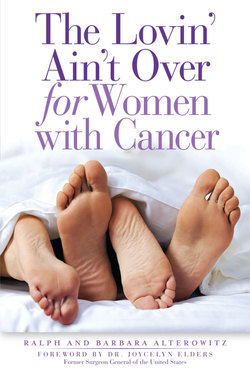Читать книгу The Lovin' Ain't Over for Women with Cancer - Ralph Alterowitz - Страница 25
На сайте Литреса книга снята с продажи.
Anxiety Disorder
ОглавлениеWill the treatment work?
Will the disease recur?
Will I die from this cancer?
How will my partner or future partner react?
Anxiety is a perfectly normal response to being diagnosed with cancer and thinking about various types of treatment. It usually subsides, at least somewhat, after treatment is begun. Anxiety can intensify if you fear that symptoms such as pelvic pain or vaginal bleeding mean the cancer has recurred. Anxiety can be substantial and chronic, upsetting behavior, disposition, and the overall feeling of wellbeing.
Affecting every aspect of daily living, anxiety is well known to interfere with the normal cycle of sexual activity. It is likely to delay and lower the level of sexual response, regardless if medication is used. A woman’s worry regarding how she will handle her partner’s expectations once they resume having sex can inhibit her from being an active partner or even attempting to engage in sex.
Marilyn, a young single woman who had a mastectomy, was fearful about going out on dates because her companion might want sex. “If he asks me, and I say no, he will probably not ask me out again. If I say yes and he sees a half-woman, he’ll walk out. I can’t win.”
In committed relationships, the partner’s anxiety can reinforce the patient’s concerns. In this situation, each partner’s distress can further increase the other partner’s discomfort.
The stress of both partners can be lessened if they take an approach of “Let’s try different things and see what happens.” Tension will be lessened if both partners can accept that they will jointly decide on things such as the woman remaining clothed during sex. In fact, her being dressed in clothing that both partners find exciting can be part of the sexual event.
Anxiety is also linked to the anticipation of being rejected. After therapy, women may project the way they feel about themselves onto their partner and take unwarranted actions. Anxiety after diagnosis is to be expected. But if it cannot be brought under control, psychologial treatment should be considered.
